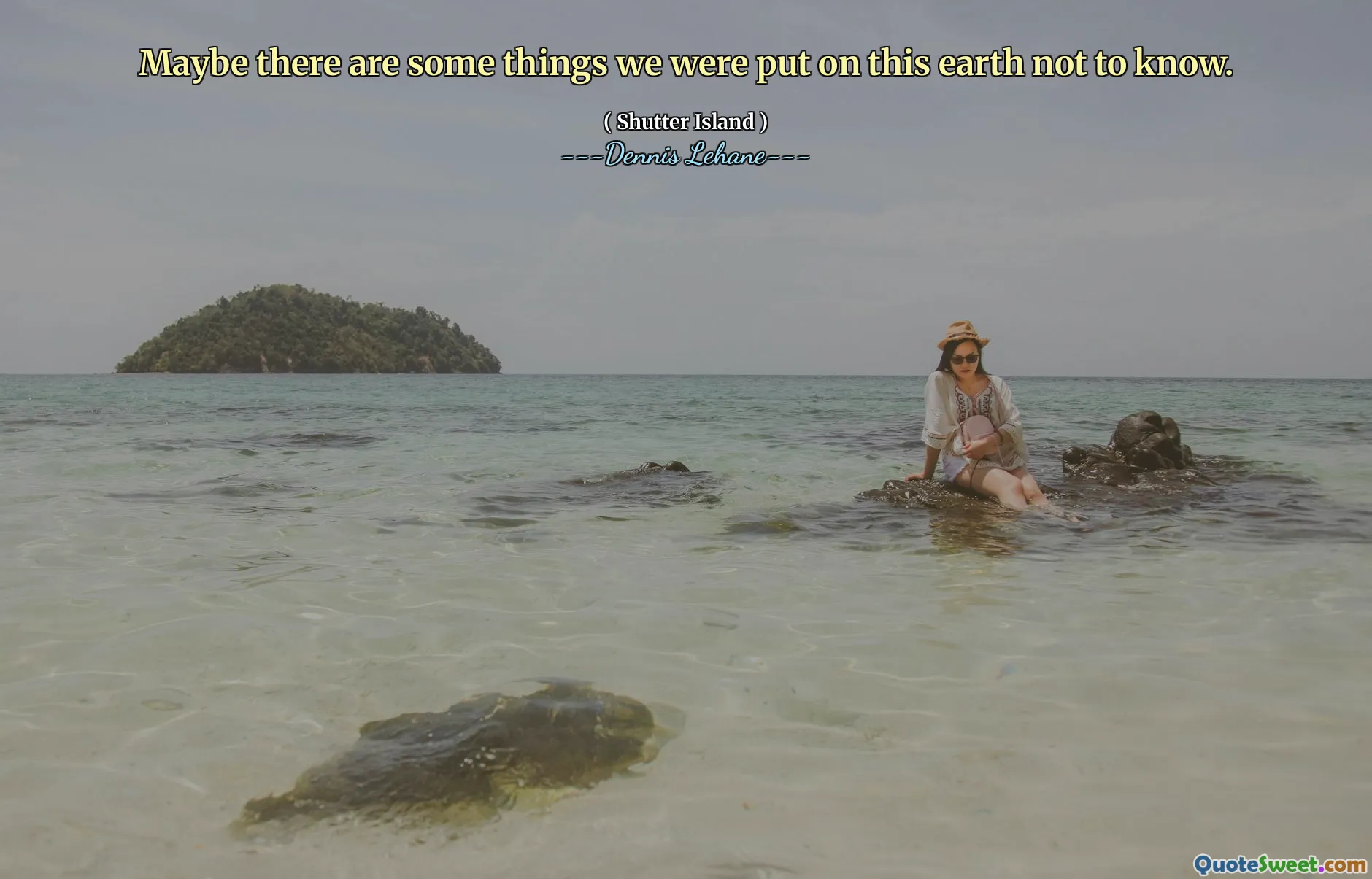
Maybe there are some things we were put on this earth not to know.
This poignant statement invites contemplation on the limitations inherent in human knowledge and understanding. While curiosity is often heralded as a noble trait that drives scientific discovery and personal growth, it also raises questions about the boundaries of our comprehension and the potential consequences of uncovering certain truths. The notion that some things are better left unknown suggests a prudence rooted in humility—acknowledging that there are mysteries which may be beyond our capacity to fully grasp or may be better kept hidden for our own well-being. This idea resonates deeply with themes explored in Michel Foucault's discussions of power and knowledge, where the pursuit of knowledge is also a pursuit of control, sometimes at the expense of peace or clarity. In literature and film, such as the movie '(Shutter Island)', the unknown often represents not just mystery but also danger, fear, and psychological torment. Recognizing that not all knowledge leads to enlightenment touches on the acceptance of uncertainty—a fundamental aspect of the human condition. It nudges us to consider humility, the acceptance of our cognitive limitations, and the importance of respecting boundaries that perhaps exist for reasons beyond our immediate understanding. Sometimes, the pursuit of certain truths might plunge us into chaos or despair, obscuring the serenity that acceptance and trust might bring. Ultimately, it emphasizes that some mysteries are an intrinsic part of existence, and perhaps, wisdom lies in recognizing which questions are worth asking and which are better left unanswered.







